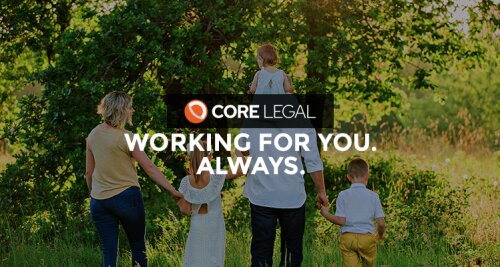Best Collaborative Law Lawyers in Masterton
Share your needs with us, get contacted by law firms.
Free. Takes 2 min.
Free Guide to Hiring a Family Lawyer
List of the best lawyers in Masterton, New Zealand
About Collaborative Law in Masterton, New Zealand
Collaborative Law is a structured, non-litigation approach to resolving family disputes. In Masterton, as in the rest of New Zealand, it involves both parties and their lawyers committing to a collaborative process designed to reach a settlements outside court. The process emphasizes open communication, information sharing, and negotiated agreements focused on the best interests of any children involved. If the collaborative process cannot reach an agreement, the lawyers must withdraw and the parties may pursue court proceedings with new representation.
Local practitioners in the Wellington region, including Masterton and the wider Wairarapa area, commonly offer collaborative law as part of their family law services. Clients benefit from transparent discussions, structured meetings, and the ability to tailor parenting plans or property settlements without the adversarial environment of courtroom litigation. This approach can save time and reduce costs when compared with traditional litigation paths.
For those navigating separation, parenting arrangements, or property disputes in Masterton, collaborative law provides a framework that keeps decisions within the parties’ control while ensuring professional guidance from qualified solicitors, and in some cases mediators or other support professionals.
Why You May Need a Lawyer
These scenarios reflect real-world issues faced by people in Masterton seeking collaborative law solutions. They illustrate concrete circumstances where legal counsel can add value beyond generic advice.
- A farming family in Masterton is dividing a rural property after separation, and both spouses want a fair, tax-aware asset split that preserves the farm’s viability and succession plans.
- Parents in Masterton disagree about custody and "time with the kids" when one parent needs to relocate for work, requiring a parenting plan that aligns with schooling, sport, and family routines.
- A small business owner in Masterton seeks a fair exit from a joint enterprise, including valuation, ongoing obligations, and protection of key employees, without disrupting business operations.
- A de facto couple in Masterton wants a clear property agreement after ending the relationship, ensuring both parties receive a fair share based on contributions and future needs.
- A blended family in the Tararua-Wairarapa area requires a plan for new parenting roles and financial responsibilities to avoid disputes that might otherwise escalate in court.
- One party suspects hidden assets or complex debt structures in a relationship, and wishes to clarify disclosure obligations and risk management through a structured, collaborative process.
Local Laws Overview
Collaborative Law practitioners in Masterton work within New Zealand's overarching legal framework for family disputes. The following statutes are central to how collaborative solutions fit into the legal system:
- Care of Children Act 2004 - Governs arrangements for children after separation, including parenting orders, contact, and care. This Act emphasises the best interests of the child and provides mechanisms for mediation and parenting plans that can be shaped through collaborative processes. See legislation.govt.nz for the text and updates: Care of Children Act 2004.
- Property (Relationships) Act 1976 - Establishes how relationship property and maintenance are treated in marital or de facto relationships. Collaborative settlements frequently address property division under this framework, with the aim of fair, durable outcomes. See legislation.govt.nz for the text and amendments: Property (Relationships) Act 1976.
- Lawyers and Conveyancers Act 2006 - Regulates the practice of lawyers and sets professional standards for delivering legal services, including collaborative law practitioners who are solicitors. See legislation.govt.nz for details: Lawyers and Conveyancers Act 2006.
In Masterton, these laws operate alongside local court rules and the services offered by the New Zealand judiciary. For general family law information and court processes, see the Ministry of Justice resources and the Courts pages: Ministry of Justice - Family Law Info and Judiciary - Family Court Information.
Frequently Asked Questions
What is collaborative law in New Zealand?
Collaborative law is a structured process where both parties and their lawyers agree to resolve disputes without going to court. If negotiations fail, the lawyers withdraw and the parties may pursue litigation with new counsel. It focuses on open dialogue and practical settlements.
How do I know if collaborative law is right for my case?
Collaborative law suits cases with cooperative parties who want to avoid court battles and who are ready to share necessary information. It is particularly suitable for parenting plans, property settlements, and business-sensitive negotiations.
What are typical costs in Masterton for collaborative law?
Costs vary by complexity and number of meetings. Expect fees for two acting solicitors, a mediator if needed, and administrative time. Many families find collaborative law cheaper than long court battles.
How long does a collaborative process usually take in New Zealand?
Timelines depend on case complexity and cooperation. A straightforward parenting plan might take 6 to 12 weeks, while complex asset divisions can take several months. Parties control the pace by agreeing in advance to schedules.
Do I need a local Masterton solicitor for collaborative law?
While you can work with a Wellington region solicitor who services Masterton, many practitioners offer virtual and in-person meetings. The key is to choose a lawyer who is experienced in collaborative practice and aligned with your goals.
What is the difference between collaborative law and mediation?
Collaborative law uses legally trained representatives and formal agreements, while mediation focuses on facilitated negotiation often without formal legal representation. Collaborative law results are typically written as binding agreements.
Is collaborative law legally binding in New Zealand?
Yes, settlements reached through collaborative processes can be made legally binding through court orders or legally drafted agreements once formalised. Always ensure documents are prepared by qualified lawyers.
How long does it take to find a collaborative law solicitor in Masterton?
Finding a local practitioner typically takes 1 to 3 weeks, including initial consultations. Use professional directories to verify qualifications and collaborative law credentials.
What should I expect in the first collaborative meeting?
You should expect a structured agenda, disclosure of relevant information, and a clear outline of the collaborative process. Both parties and their lawyers commit to resolving the issues without going to court.
Can collaborative law address business valuations and debt?
Yes. Collaborative law can handle complex issues such as business valuations, debt settlement, and ongoing financial arrangements, with independent experts engaged as needed.
Should I bring a lawyer to a first meeting?
Yes. Bringing your lawyer ensures you receive accurate legal guidance and helps you assess whether collaborative law is appropriate for your situation.
Do I qualify for collaborative law if I have a high-conflict case?
Collaborative law works best when both sides are committed to resolution. If high-conflict dynamics persist, the process may require adaptation or a different dispute resolution approach.
Additional Resources
- Ministry of Justice (New Zealand) - Provides information on family law processes, mediation, and court procedures. See: justice.govt.nz
- Collaboration Law New Zealand - Professional organization offering directories, practitioner guidelines, and resources for the collaborative process in New Zealand. See: collaborativelaw.org.nz
- New Zealand Legislation - Official database for statutes such as the Care of Children Act 2004, Property (Relationships) Act 1976, and Lawyers and Conveyancers Act 2006. See: legislation.govt.nz
Next Steps
- Identify your goals and collect key documents (asset statements, income details, parenting schedules) within 1 week.
- Search for Masterton and Wellington-region collaborative law solicitors using professional directories and the Collaborative Law New Zealand site within 1-2 weeks.
- Contact 2-3 practitioners to arrange no-obligation initial consultations within 2-3 weeks of decision.
- During consultations, ask about experience with farming assets, small business valuations, or parenting plans, and request a written cost estimate.
- Choose a collaborative law solicitor and sign a Collaboration Agreement outlining the process, fees, and ground rules within 1 week after the final consultation.
- Prepare a detailed disclosure package and timeline with your legal team within 2 weeks of signing the agreement.
- Begin structured collaborative meetings, with periodic progress reviews and adjustments as needed, aiming for a binding settlement within 3-6 months for straightforward cases or longer for complex assets.
Lawzana helps you find the best lawyers and law firms in Masterton through a curated and pre-screened list of qualified legal professionals. Our platform offers rankings and detailed profiles of attorneys and law firms, allowing you to compare based on practice areas, including Collaborative Law, experience, and client feedback.
Each profile includes a description of the firm's areas of practice, client reviews, team members and partners, year of establishment, spoken languages, office locations, contact information, social media presence, and any published articles or resources. Most firms on our platform speak English and are experienced in both local and international legal matters.
Get a quote from top-rated law firms in Masterton, New Zealand — quickly, securely, and without unnecessary hassle.
Disclaimer:
The information provided on this page is for general informational purposes only and does not constitute legal advice. While we strive to ensure the accuracy and relevance of the content, legal information may change over time, and interpretations of the law can vary. You should always consult with a qualified legal professional for advice specific to your situation.
We disclaim all liability for actions taken or not taken based on the content of this page. If you believe any information is incorrect or outdated, please contact us, and we will review and update it where appropriate.









